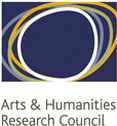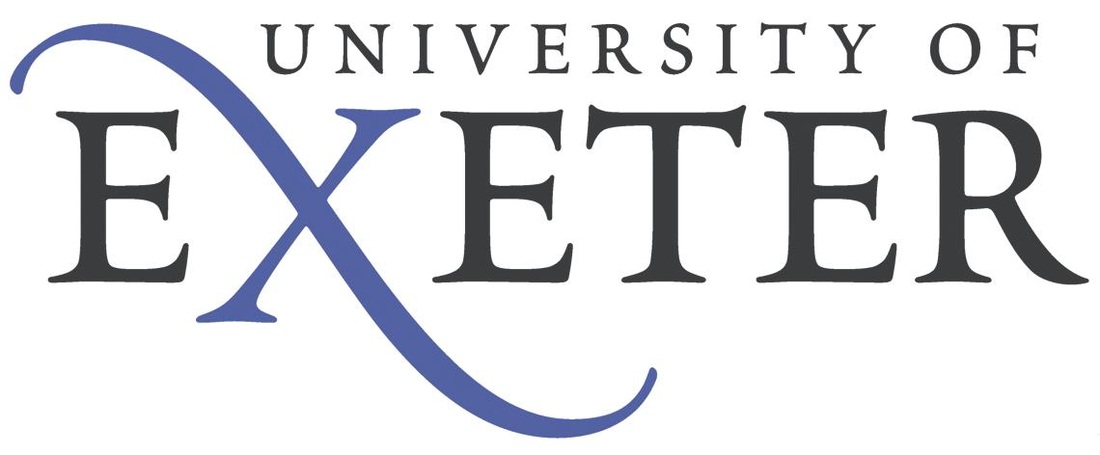Dr Caroline Chapain, University of Birmingham
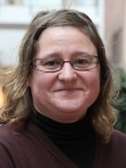
Caroline Chapain is a lecturer at the Business School, University of Birmingham. Previously, she studied and worked in France and in Canada. From 2002 to 2005, she worked as a research advisor on public finance, economic development, and cultural issues for the Montreal Metropolitan Planning Organization. Since 2005, she has been looking at the way creative industries emerge, operate and develop at the local and regional levels in the UK and in Europe. She was part of ACRE, a FP6 project which aimed to assess the impact of the emerging 'creative class' and the rise of the 'creative industries' on the competitiveness of EU metropolitan regions. She was also recently involved in a project looking at the links between creative clusters and regional innovation in Great Britain for NESTA. In addition to 'Crafting communities of practice and interest: connecting "online" and "offline" making practices', she has been involved in two other AHRC Connected Communities projects: one looking at ‘Complexity theory and the creative economy’ (2011-2012) and the other one looking at 'Creative citizens and community media spheres', this project is running until 2014.
Dr Roberta Comunian, King's College London
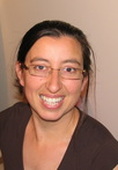
Dr. Roberta Comunian is a lecturer in Cultural and Creative Industries at the Department of Culture, Media and Creative Industries, King’s College London. She has previously worked at the University of Kent and at the University of Southampton. She holds a European Doctorate title in Network Economy and Knowledge Management. She is interested in: relationship between public and private investments in the arts, art and cultural regeneration projects, cultural and creative industries, complexity theory and creativity. She has been Marie Curie Fellow at University of Newcastle (Centre for Urban and Regional Development Studies) investigating the relationship between creative industries, cultural policy and public supported art institutions. She has also undertaken research on knowledge transfer and creative industries within an AHRC Impact Fellowship award at the University of Leeds. Her current work is concerned with exploring the role of networks in the creative economy as well as the role of higher education in the creative economy with particular focus on the career opportunities and patterns of creative graduates in UK.
Dr Kathryn Lichti-Harriman, University of Exeter
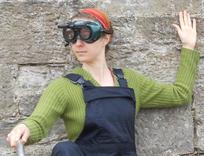
Dr. Kathryn Lichti-Harriman (PhD in Visual Anthropology and Material Culture) is a maker, lover and performer of the arts who cut her research teeth studying the contemporary material culture and symbolic social relations of non-professional makers in North-East Scotland. She is interested in the way that non-professionals imbed discourses and practices of “creativity” and “making” in to their everyday lives as well as in the way such concepts and practices are politically circumscribed by hierarchies within and between the worlds of Art and Craft. Her analytical inspiration comes from a combination of participant-observation (ethnography) and Melineasinist anthropology such as Strathern, Wagner and Leach.
She brings her commitment to research excellence and grounded theory to all of her work which currently includes both “Crafting communities of practice and interest: connecting 'online' and 'offline' making practices” and a practice-led project, DynaMode, which focuses on exploring the limits and potentials of “European-ness” as a unifying concept amongst the citizens of the European Union. This is done using non-professional performing arts as a means for social engagement.
She brings her commitment to research excellence and grounded theory to all of her work which currently includes both “Crafting communities of practice and interest: connecting 'online' and 'offline' making practices” and a practice-led project, DynaMode, which focuses on exploring the limits and potentials of “European-ness” as a unifying concept amongst the citizens of the European Union. This is done using non-professional performing arts as a means for social engagement.
Dr Simon Moreton, AHRC REACT Knowledge Exchange Hub
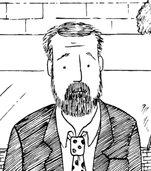
I am a human geographer concerned with how creative and cultural economies are constituted. I am interested in the theoretical, social and political mechanisms by which ideas like ‘creativity’ and ‘cultural value’ give rise to spatial expressions of creativity in urban areas and how we measure the value of those processes. I’m also interested in the everyday politics of creative practice and representations of mental illness. Since taking part in the 'Connecting Craft and Communities' AHRC Network I've been working as a Research Fellow on the associated research. I was able to start work on this project before moving to a new job as Knowledge Exchange Fellow at the REACT Hub. Funded by the Arts and Humanities Research Council (AHRC), REACT (Research and Enterprise in Arts and Creative Technology) is one of four UK Knowledge Exchange Hubs for the Creative Economy and is a collaboration between UWE Bristol (the University of the West of England), Watershed and the Universities of Bath, Bristol, Cardiff and Exeter.
Dr Nicola Thomas, University of Exeter
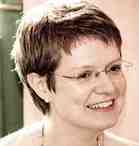
Dr. Nicola Thomas is Senior Lecturer in Human Geography (specialising in cultural and historical geography) at the University of Exeter. Her work on the 'other geographies' of the creative economy focuses on relationships between place and identity as they are negotiated by the creative makers, arts institutions and governance organisations, including a current long term research project that addresses the histories, practices and politics of craft guilds, working primarily with the Devon Guild of Craftsmen and Gloucestershire Guild of Craftsmen. In relation to the AHRC Connected Communities programme, Nicola led the AHRC 'Connecting Craft and Communities Network' which explored the social and material relations that are entangled with craft practices. The conversations in the network contributed to the development of this project which addresses the social relations of craft practices in relation to Web 2.0 technologies.
